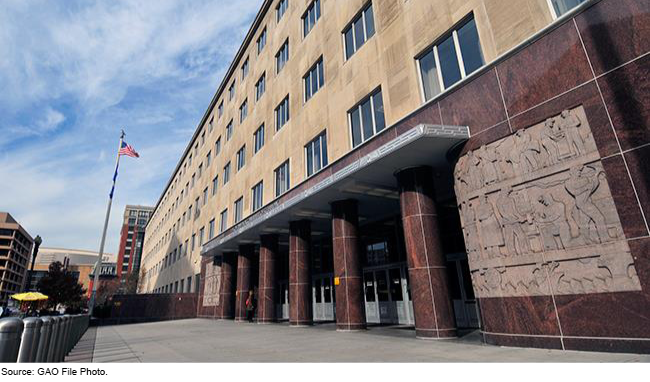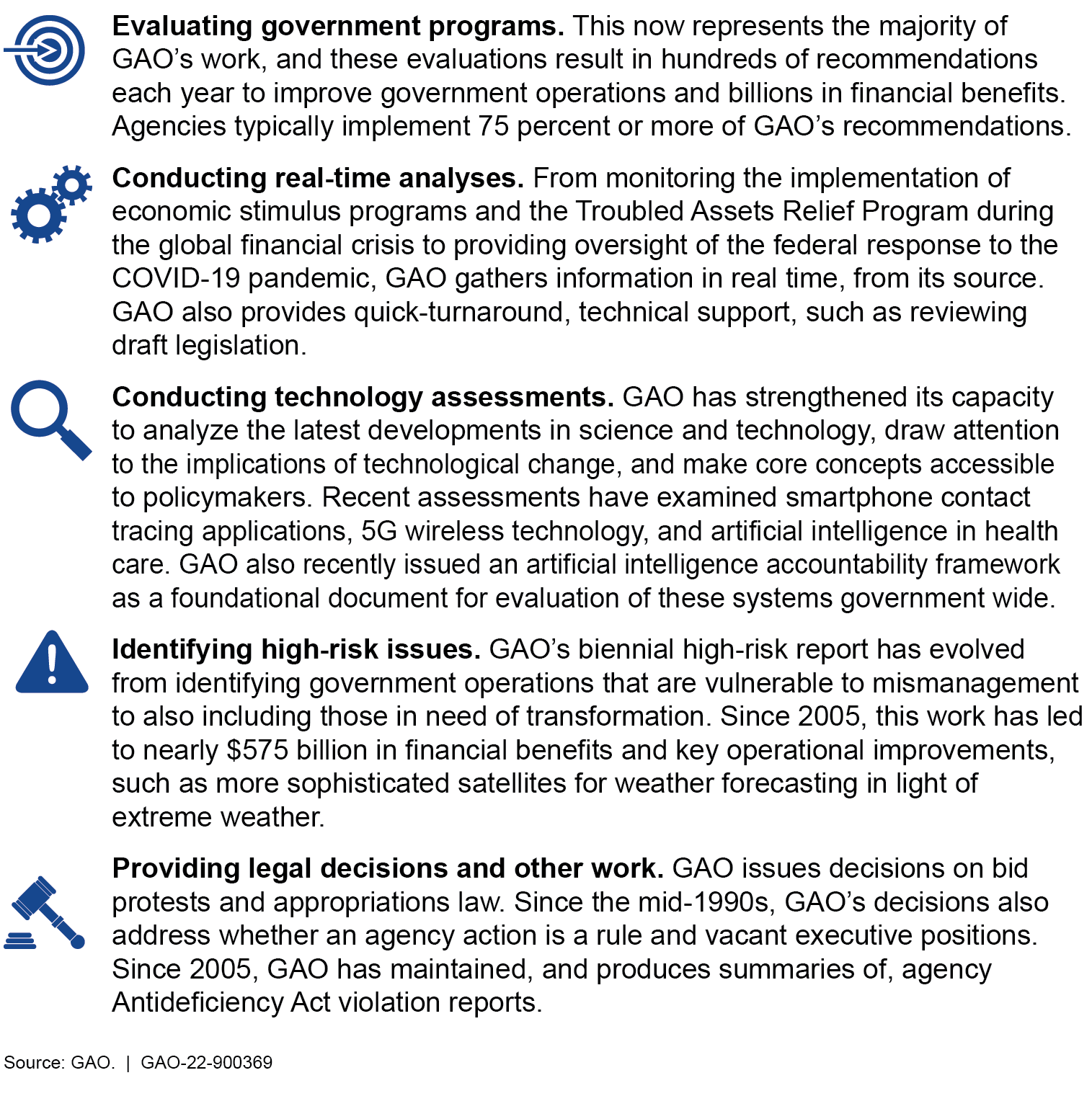GAO: A Century of Strategic Evolution to Meet Congressional Needs
Fast Facts
We testified about the wide range of services we provide to Congress, how they have evolved, and how the agency is positioned for the future.
GAO began in 1921 reviewing payments and conducting financial reviews. Since then, we have adapted our work—with an eye towards informing congressional decision-making and improving government. Today most of our work is the evaluation of federal programs. Our nonpartisan, fact-based work produces hundreds of recommendations that save billions of dollars every year.
We continue to evolve. For example, a new team now leads our science and technology work and we continue to grow our cybersecurity expertise.
GAO Headquarters

Highlights
GAO’s Evolution of Expertise and Services
Over the last century, GAO has strategically adapted its services and products—all with an eye towards informing congressional decision-making and improving government operations through nonpartisan and fact-based work.

GAO continues to evolve to meet the needs of Congress. From establishing a team to serve as the lead for its science and technology work, to growing its cybersecurity expertise, to developing quick-read products, GAO strives to anticipate or respond to changing congressional needs and emerging issues. For example, one of GAO’s newest products, the “Science and Technology Spotlight,” explains emerging science and technology with its associated opportunities and challenges, and relevant policy considerations.
GAO’s unique mission and structure, diverse and talented workforce, and external network makes it well-positioned to continue to support Congress into the future. The agency’s highly-skilled workforce and well-developed professional network that spans the globe enable GAO to anticipate emerging issues, challenges, and opportunities and craft strategic plans for serving the Congress and the country.
GAO’s History and Impact
The Budget and Accounting Act of 1921 established GAO as an independent agency to investigate how federal dollars are spent. Early in GAO’s history, it conducted reviews of federal payments and focused on conducting financial reviews.
By the 1970s, the size, scope, and complexity of the federal government had expanded, and congressional interest in whether government programs were meeting their objectives was growing. Consequently, GAO shifted its efforts to evaluating the efficiency and effectiveness of federal programs. In 2004, GAO changed its name from the General Accounting Office to the Government Accountability Office to better reflect this expanded role.
Today, GAO’s work spans all federal programs and spending—from agriculture to space programs, banking regulation to public health, and cybersecurity to international aid. We also do financial audits of the US government and assessments of its fiscal outlook.
The impact of this work is significant: since 2005, GAO’s findings and recommendations have resulted in $1 trillion in financial benefits and more than 21,000 operational benefits for the U.S. government. Over the past 5 years, GAO’s average return on investment is $165 for every $1 invested in GAO.
In this testimony, GAO describes the wide range of services it provides to Congress, how these services have evolved to meet congressional needs, and how it is positioned to meet future needs and challenges.
For more information, contact A. Nicole Clowers at (202) 512-4400 or clowersa@gao.gov.
